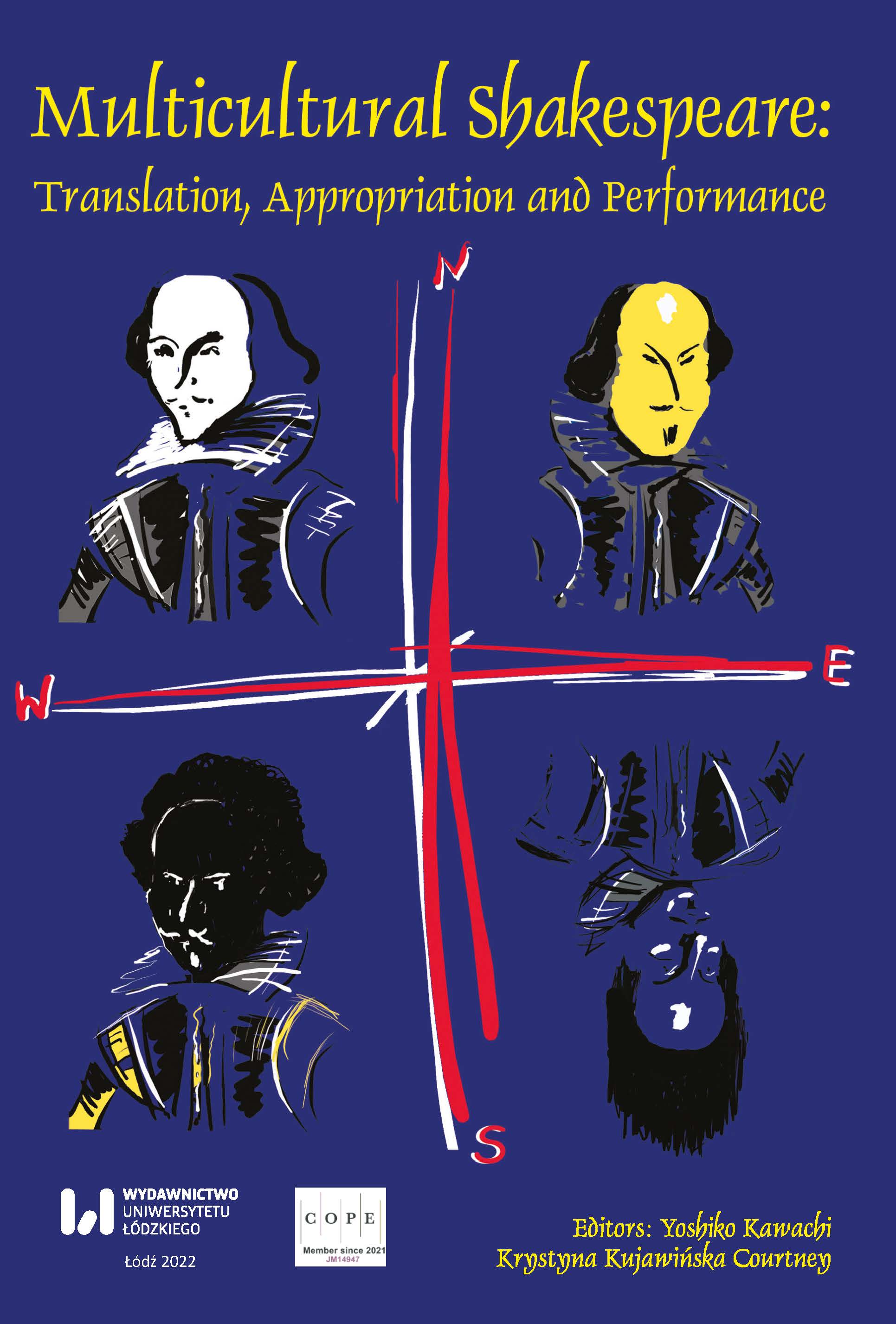From Race and Orientalism in A Midsummer Night’s Dream to Caste and Indigenous Otherness on the Indian Screen
DOI:
https://doi.org/10.18778/2083-8530.26.06Słowa kluczowe:
A Midsummer Night’s Dream, 10ml Love, Indian cinema, independent film, film adaptation, race, Orientalism, Otherness, caste, religion, gender, class, utopia in filmAbstrakt
The article discusses an Indian film adaptation of William Shakespeare’s play A Midsummer Night’s Dream entitled 10ml Love (dir. Sharat Katariya, 2012). There is little scholarship on 10ml Love, which has been studied mainly as an independent film in Hinglish that depicts the lives of the cosmopolitan youth in urban India. Drawing upon recent readings of the play that identify elements of racism and whiteness as well as an analysis from an Orientalist lens that sees India as a gendered utopia, I suggest that the film adaptation highlights not racial/white supremacy but caste supremacy; furthermore, it indulges not in Orientalist tropes but tropes of indigenous Otherness based on religion, gender, caste, and class. I argue that this film presents two opposing political utopias—a right-wing utopia that stands for the maintenance of traditional values and a left-wing utopia that attempts to challenge, question, and subvert the conservative order. However, 10ml Love seems to endorse neither of the two utopias wholly; its reality appears to lie between the two utopias, a reality that is marked by stereotypes of Otherness. This paper analyses the audio-visual depiction of the tension between the utopias at both the ends of the political spectrum, as well as the realities of Otherness created by the presence of various social locations and identities in Indian society.
Pobrania
Bibliografia
10ml Love. Dir. Sharat Katariya. Film. Dirt Cheap Pictures, 2012.
Google Scholar
Grady, Hugh. Shakespeare and Impure Aesthetics. Cambridge: Cambridge University Press, 2009.
Google Scholar
DOI: https://doi.org/10.1017/CBO9780511605277
Harris, Jonathan Gil. Masala Shakespeare: How a Firangi Writer Became Indian. New Delhi: Aleph Book Company, 2018.
Google Scholar
Harris, Jonathan Gil. Shakespeare and Literary Theory. Oxford: Oxford University Press, 2010.
Google Scholar
Karim-Cooper, Farah. “Shakespeare, Race and Performance.” https://youtu.be/wa6IwJHuxh4/ Accessed 25 August 2022.
Google Scholar
Manusmriti (The Laws of Manu). Trans. George Buhler. https://sacred-texts.com/hin/manu/manu03.htm/ Accessed 12 August 2022.
Google Scholar
Panjwani, Varsha. “Shakespeare and Independent Indian Cinema.” Shakespeare and Indian Cinemas: Local Habitations. Ed. Poonam Trivedi and Paromita Chakravarti. New York: Routledge, 2019.
Google Scholar
DOI: https://doi.org/10.4324/9781315670409-11
Shakespeare, William. A Midsummer Night’s Dream [1595]. Ed. Jonathan Bate and Eric Rasmussen. William Shakespeare: Complete Works. Basingstoke: Macmillan, 2007. All citations from the play have been taken from this edition.
Google Scholar
Stone, James W. “Indian and Amazon.” Ed. Debra Johanyak and Walter S. H. Lim. The English Renaissance, Orientalism, and the Idea of Asia. New York: Palgrave Macmillan, 2010.
Google Scholar
Thompson, Ayanna. “Introduction.” The Cambridge Companion to Race and Shakespeare. Ed. Ayanna Thompson. Cambridge: Cambridge University Press, 2021. 1-16.
Google Scholar
DOI: https://doi.org/10.1017/9781108684750.001
Trivedi, Poonam and Paromita Chakravarti. “Introduction.” Shakespeare and Indian Cinemas: Local Habitations. Ed. Poonam Trivedi and Paromita Chakravarti. New York: Routledge, 2019. 1-19.
Google Scholar
DOI: https://doi.org/10.4324/9781315670409-1
Pobrania
Opublikowane
Wersje
- 2023-12-20 - (2)
- 2022-12-30 - (1)
Jak cytować
Numer
Dział
Licencja

Utwór dostępny jest na licencji Creative Commons Uznanie autorstwa – Użycie niekomercyjne – Bez utworów zależnych 4.0 Międzynarodowe.












